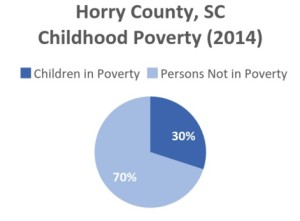The only power we had was an electric cord that ran from my uncle's house into our house."
The damp and chilly makeshift house once used for storage has paneling caulked to the cinderblock walls and some plumbing now. An extension cord provided by family members ran into the makeshift house so Levi could illuminate the bathroom, power the microwave to heat up a meal, or use an old, metal heater. He spent his time after school racing the setting sun to get his homework done because the extension cord could only be used for one thing at a time: lighting, heating, or cooking. Having light for homework was not something he could count on.1
“The most difficult part was running off of other people's time, for work, storing food, staying warm in the winter months.” Struggle was central to his way of life. He was born to a single mother who never finished high school. His father had taken off shortly after his mother found out she was pregnant; he was looking for citizenship, not a family. Levi spent his childhood bouncing back and forth between family members when his mother would leave him. He was 12 when he found himself living without power and waking to a cold shower before school. Struggling with piled up homework while trying to work for a living started to wear on him. He couldn’t sleep at night, wrestling with one worry after another.2
He withdrew from public school and enrolled in homeschool to work more hours and study when it was more convenient. Free time was spent laboring at construction sites with family members and scooping ice cream at the corner ice cream stand next to his house. The constant stress of money was ingrained from a young age. It interrupted and robbed him of a childhood while also managing to shape his early adulthood. Surrounded by crime in the neighborhood he was growing up in, Levi started selling drugs while working two jobs at a gas station and Subway. He was caught and ended up being sentenced to 3 years in prison.
“Every two hours you had to get in your bed so they could count you, make sure everybody was there.” Once Levi was in prison, he found living off other people’s time carried over. He wasn’t embarrassed about going to prison saying “It [felt like]...where I am from.” Instead of dreaming about the future like most people in their early twenties, Levi was worried about surviving the present. “I thought about eating. I had thought about school but I had to pay a lot of money when I got out, so you know….” He tried to keep his thoughts on his next move, where he was going to eat and how he was going to pay probation fees, not the long term.
After getting out, Levi decided he had to change his life, but the state of South Carolina did not make it easy. Requiring fees be paid the day of release and every month after until probation was complete was not simple; he didn’t have a job or money saved.3
Once again, Levi was feeling the stress of money and his freedom was on the line. He ended up getting a part time job and building his way up to a full-time position. He even did something terrifying to him: he enrolled in technical school. Growing up, college wasn’t talked about, “I was never urged to go to college. I didn’t think I would be able to make it intelligence wise.” After two years of taking courses and earning a 3.9 GPA, Levi is ready to transfer to a four-year university. “I ended up doing pretty well,” he says modestly.
“It still bothers me, I still don’t know how it’s going to play out after I get a degree. It will still probably haunt me,” Levi says about his felony record. For the first time in his life, he is stable. He can finally dream about the future and take the time to think about what he wants for himself. He is interested is renewable energy and social equality.4 He explains that solar could “really work out for other people who were in the same position or something similar.”
-
Unemployment in South Carolina
Levi, like many people along the Grand Strand, struggle to find consistent, year-round work.
-
Solar in Poor Communities
Solar energy, especially when decentralized, gives control of energy production back to the user while also making energy less expensive in the long run.


